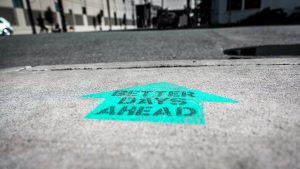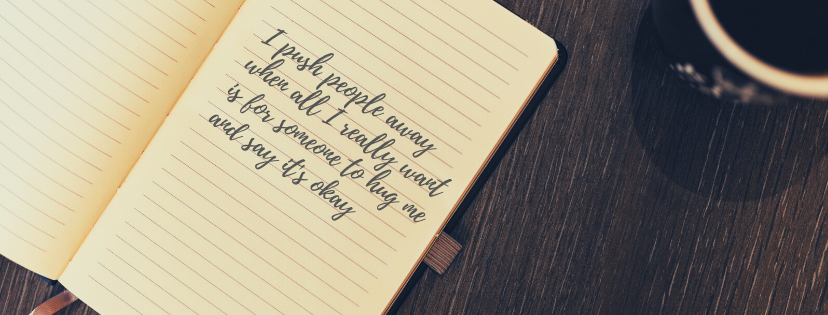 There’s no denying that 2020 has been a rough year! It will take years to estimate the real impact that Covid-19 has had on the world’s health and it would not come as a surprise to discover that the toll on our mental health has been as bad as that on our physical health.
There’s no denying that 2020 has been a rough year! It will take years to estimate the real impact that Covid-19 has had on the world’s health and it would not come as a surprise to discover that the toll on our mental health has been as bad as that on our physical health.
There are undeniably more people reaching crisis point with their mental health, as numbers calling helplines and seeking professional help testify. But behind that is a tide of people who are soldiering on, overwhelmed at times, but trying desperately to keep it together. We all need to ensure that we are putting self-care strategies in place so that we give ourselves the best chance of retaining the ability to cope with what life throws at us.
Physical and mental health are inextricably linked so here are some suggestions for looking after body, mind and brain. So grab yourself a hot drink, settle on the sofa, have a read and then plan to do something just for you.
A is for Affirmations – Choose something uplifting and encouraging to say to yourself everyday and think of it as rewiring your brain.
B is for Buddies – Set aside some time each week to catch up with someone who makes you laugh.
C is for Control – We all tend to spend time worrying about things over which we have no control. Think about where you could let go and focus on the things you can control – your thoughts, your words and your actions.
D is for Deep breathing – In times of stress or threat our bodies automatically react and set our hearts racing – the only physiological response we can consciously control is our breathing. Taking long slow breaths sends calming signals to your brain.
E is for Emotions – We are human and all feel emotions. When we bury them they tend to surface in another way. Instead try to stay curious and describe them in more detail – rather than ‘down’ I may be feeling ‘isolated’ ‘powerless’ or ‘disappointed’. Pinpointing feelings with more accuracy help us to manage our emotions and move on. Download an emotion wheel to help.
F is for Focus – We all crave a feeling of achievement but multitasking is not the way forward – it can actually reduce productivity by as much as 40%. Turn off notifications and allow yourself to focus on one thing at a time – you will feel more in flow and get more done!
G is for Growth Mindset – With a growth mindset we remind ourselves that everyone has the capacity to learn and grow, and that making mistakes is a valuable source of learning. If you find yourself saying “I can’t” add a “yet” on the end.
H is for Healthy Eating – Eating nutritious food is good for the mind as well as the body. Iron, selenium and Vitamin D are particularly helpful – try adding some nuts, pulses and seeds to your diet. (I’m obsessed with toasted pumpkin seeds – delicious on fruit, porridge, soup or salad!)
I is for Imagination – Using your ability to create a mental image can be very powerful. Use your imagination to picture a tranquil lake to calm your mind, or visualise a future event or feeling to keep yourself motivated. Like affirmations, it’s a way of rehearsing your brain for something positive.
J is for Journaling – Sometimes we can feel overwhelmed by our thoughts and feelings. Writing them in a journal can help us reflect and put things in perspective.
K is for Kindness – There are so many benefits of kindness. It has been proven that being kind to others is good for our mental health, can reduce stress, reduce inflammation in the body, build stronger relationships… it may even help us live longer! Most importantly, be kind to yourself.
L is for Lunch – As well as eating, make sure you have a break away from your work – don’t skip it!
M is for Meditation – Meditation and Mindfulness helps us to train our attention, separate ourselves from our thoughts and feelings, and to feel calmer and more present. Just a few minutes sitting quietly each day can be beneficial to our mental and physical wellbeing.
N is for Nap – Our cognitive processes actually use around 20% of our bodies’ resources which is why endless zoom meetings and learning new things make us tired. A 20 minute nap can recharge our brain battery and refresh us. Give yourself permission!
O is for Outdoors – Aim to get out in the fresh air every day even for a short walk.
P is for Play – Make sure you have time for doing the things you love or make plans to do things in the future.
Q is for Quiet – Reserve some quiet time for reading or soaking in the bath – especially if you have young children!
R is for Relationships – Nurture close connections at home and work. We all need someone we can be totally open with, someone who listens and won’t judge us. The more we can be that person for someone else, the more we build those close connections. If you think you need to talk to someone who is totally independent from your life and work then consider seeking the services of a coach or a therapist.
S is for Skills – We are generally happier when we are finding opportunities to use our skills and talents – whether that’s at work or at home. What are you really good at?
T is for Thankfulness – Our brains are programmed to notice threat or negativity more than positivity. Redress the balance by starting or ending the day thinking of three things for which you are grateful – this could be anything such as little successes you have had or simple pleasures like a beautiful sky
U is for Unlearning – “The most valuable skill we can learn in our lives is to unlearn what is untrue” Antisthenes. Unlearning means we discard that which is no longer serving us – whether that is unhelpful beliefs, habits or ways of doing things, and this might feel uncomfortable but staying curious and open to new ways of thinking can be an aid to resilience.
V is for Volunteering – Helping other people has been proven to boost mood and wellbeing.
W is for Words – Pay attention to language that we use with others and with ourselves as it affects our energy levels – change “I should…” and “I have to” to “I choose to”
X is for eXercise – You know what to do – think about small changes you can make to keep moving!
Y is for Yoga – Yoga combines movement of the body with stillness of the mind and a focus on breathing. There are many different types of yoga classes online and offline. You don’t have to be super flexible. Look for a ‘Yoga Nidra’ to help you relax before bed – you will sleep like a baby… which leads us on to…
Z is for ZZZZ sleep – Give yourself the opportunity of 7-8 hours rest each night but try not to stress if you’re awake for some of that. Cut down on caffeine, alcohol and screens before bed to give you the best chance of dropping off and staying asleep.

